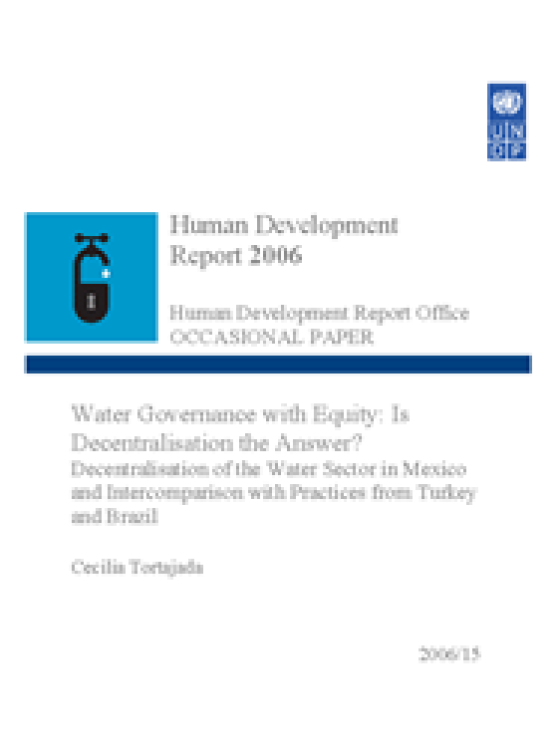Water Governance with Equity: Is Decentralisation the Answer?
Decentralisation of the Water Sector in Mexico and Intercomparison with Practices from Turkey and Brazil

Download Report by Language
Document
tortajadab.pdf
(1.52 MB)
Citation
Tortajada, Cecilia. 2006. Water Governance with Equity: Is Decentralisation the Answer?: Decentralisation of the Water Sector in Mexico and Intercomparison with Practices from Turkey and Brazil. New York.
Water Governance with Equity: Is Decentralisation the Answer?
Decentralisation of the Water Sector in Mexico and Intercomparison with Practices from Turkey and Brazil
Posted on: January 01, 2006
The concept of governance has permeated the national and international development discourses from the early 1980s. Its emergence can be traced at the country level to a disgruntlement with the state-dominated models for economic and social development that were prevalent throughout the socialist bloc and most of the Third World countries in the 1950s, 1960s, and 1970s (Weiss, 2000). With the increasing complexity of the current political, economic, social, environmental and institutional issues which affect all societies, governance is often regarded as an umbrella concept that considers multifaceted processes where the societal goals are pursued with the interactions of all the interested actors, in all specific fields of development through the promotion of dialogues in terms of decision-making and participation of multiple actors. A fundamental issue that is still to be resolved, however, is how this multi-stakeholder participation in all decision-making processes can be carried out cost-effectively and in a timely manner so that the results are not only near optimal but also socially acceptable. It is important to note that governance is not synonymous with government. It is instead a complex process that considers, inter alia, multi-level participation, beyond the state, where decision-making does not only include public institutions, but also private sector, non-governmental organisations, and the society in general. Good governance requires the presence of transparency and accountability from all the concerned parties.

